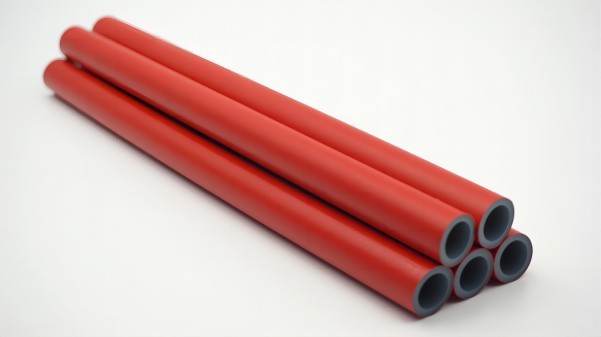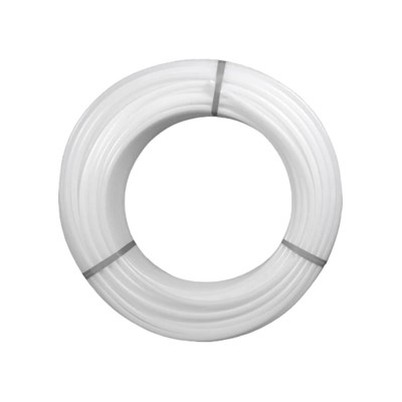Are there any safety concerns with water pex pipe?
Leave a message
When it comes to plumbing systems, water PEX pipes have gained significant popularity in recent years. As a water PEX pipe supplier, I often encounter questions from customers regarding the safety of these pipes. In this blog post, I will delve into the safety concerns associated with water PEX pipes, providing a comprehensive analysis based on scientific research and industry standards.


Understanding PEX Pipes
PEX, or cross-linked polyethylene, is a type of plastic pipe that has revolutionized the plumbing industry. It is made by cross-linking polyethylene molecules, which enhances its strength, flexibility, and resistance to heat and chemicals. PEX pipes are commonly used for both hot and cold water distribution systems in residential and commercial buildings.
One of the key advantages of PEX pipes is their flexibility, which allows for easy installation in tight spaces and around obstacles. They are also resistant to freezing, reducing the risk of burst pipes during cold weather. Additionally, PEX pipes have a smooth inner surface, which minimizes the buildup of scale and sediment, ensuring better water flow and quality.
Safety Concerns and Misconceptions
Despite their numerous benefits, some people have raised concerns about the safety of PEX pipes. One of the most common concerns is the potential for PEX pipes to leach chemicals into the water supply. However, extensive research has shown that PEX pipes are safe for use in potable water systems.
The PEX pipes used in plumbing applications are manufactured to meet strict industry standards and regulations. In the United States, PEX pipes must comply with the National Sanitation Foundation (NSF) standards, which ensure that the pipes are safe for use with drinking water. The NSF certification process involves rigorous testing to ensure that the pipes do not leach harmful chemicals or contaminants into the water.
Another concern is the potential for PEX pipes to degrade over time, especially when exposed to high temperatures or certain chemicals. While it is true that PEX pipes can degrade under extreme conditions, proper installation and maintenance can minimize the risk of degradation. For example, PEX pipes should be installed in accordance with the manufacturer's instructions, and they should not be exposed to direct sunlight or high temperatures for extended periods.
Addressing Safety Concerns
As a water PEX pipe supplier, I understand the importance of addressing these safety concerns and providing customers with accurate information. That's why we only offer PEX pipes that are NSF-certified and meet the highest industry standards. Our PEX pipes are made from high-quality materials and are designed to provide long-lasting performance and reliability.
In addition to providing high-quality products, we also offer comprehensive technical support and training to our customers. Our team of experts can help you select the right PEX pipes for your specific application and provide guidance on proper installation and maintenance. We also offer a warranty on our products, giving you peace of mind knowing that your investment is protected.
Benefits of Using PEX Pipes
Despite the safety concerns, the benefits of using PEX pipes far outweigh the risks. PEX pipes offer several advantages over traditional plumbing materials, such as copper and PVC. Some of the key benefits of using PEX pipes include:
- Flexibility: PEX pipes are highly flexible, which allows for easy installation in tight spaces and around obstacles. This can save time and money on installation costs.
- Resistance to Freezing: PEX pipes are resistant to freezing, reducing the risk of burst pipes during cold weather. This can save you money on costly repairs and water damage.
- Smooth Inner Surface: PEX pipes have a smooth inner surface, which minimizes the buildup of scale and sediment. This ensures better water flow and quality, reducing the risk of clogs and other plumbing problems.
- Long-Lasting Performance: PEX pipes are designed to provide long-lasting performance and reliability. They are resistant to corrosion, abrasion, and chemical damage, which can extend their lifespan and reduce the need for frequent replacements.
Conclusion
In conclusion, water PEX pipes are a safe and reliable choice for plumbing systems. While there are some safety concerns associated with PEX pipes, these concerns can be addressed through proper installation, maintenance, and the use of high-quality products. As a water PEX pipe supplier, we are committed to providing our customers with the highest quality products and services. We offer a wide range of PEX pipes, including PEX Pipe for Floor Heating, PE-Xa Pipe NSF, and PE-Xa Pipe for Plumbing Pipe, to meet the needs of different applications.
If you are considering using PEX pipes for your next plumbing project, we encourage you to contact us to learn more about our products and services. Our team of experts can help you select the right PEX pipes for your specific application and provide guidance on proper installation and maintenance. We look forward to working with you to ensure the success of your plumbing project.
References
- National Sanitation Foundation (NSF). NSF/ANSI 61: Drinking Water System Components – Health Effects.
- Plastics Pipe Institute (PPI). PEX Pipe: A Comprehensive Guide.
- American Society of Plumbing Engineers (ASPE). Plumbing Engineering Design Handbook.




